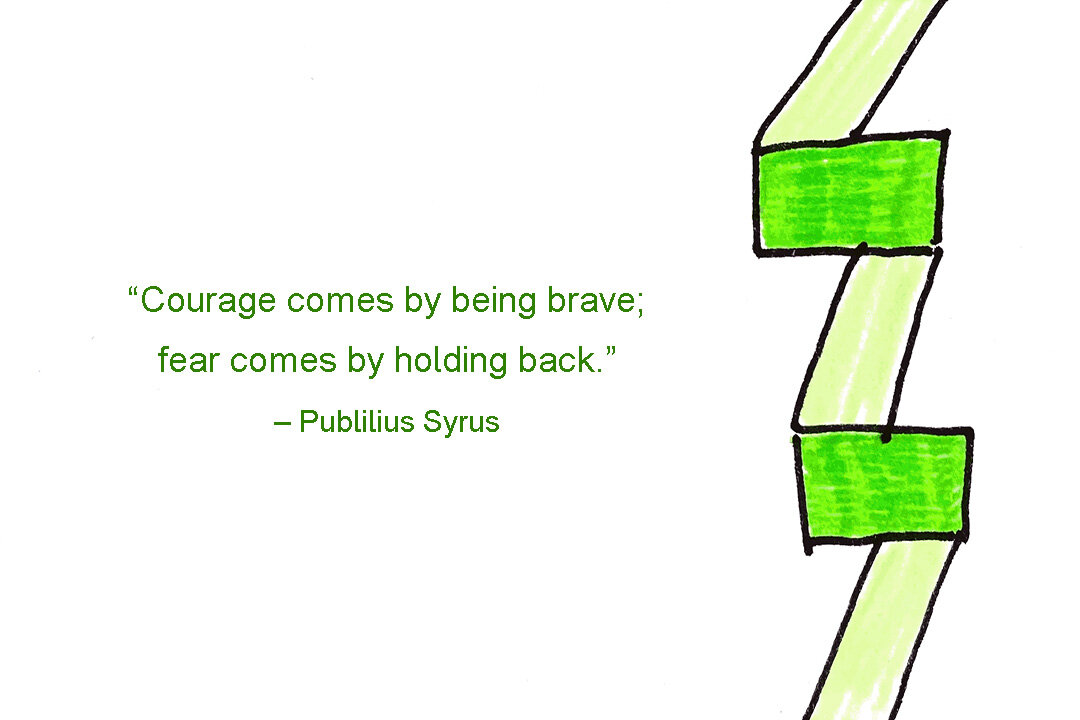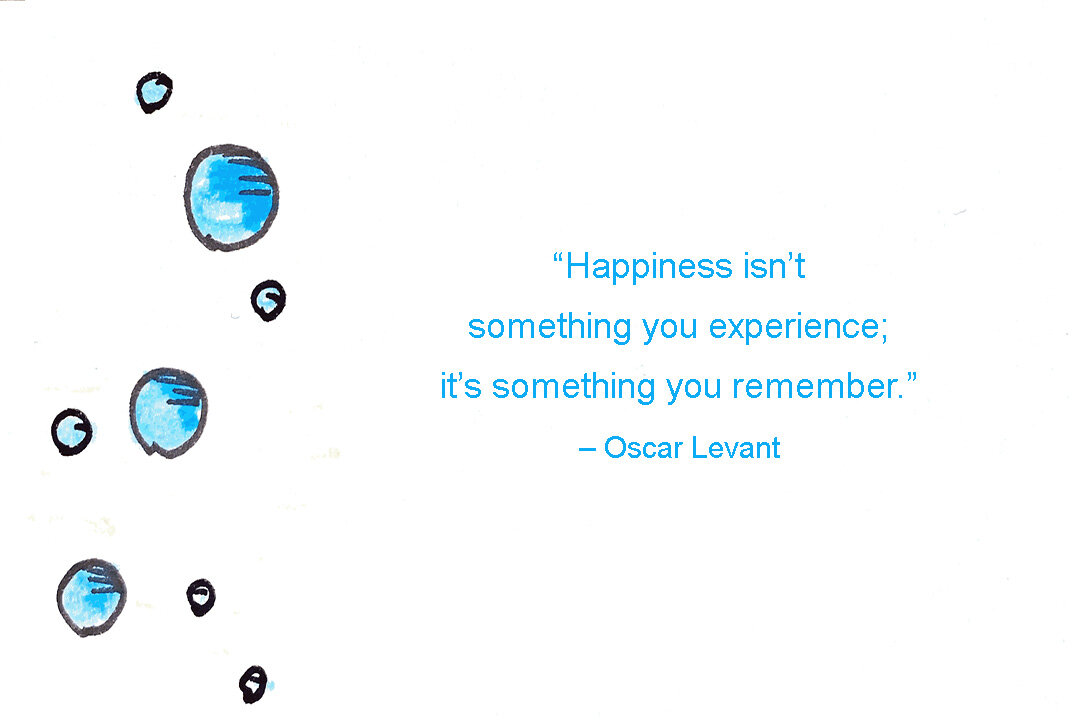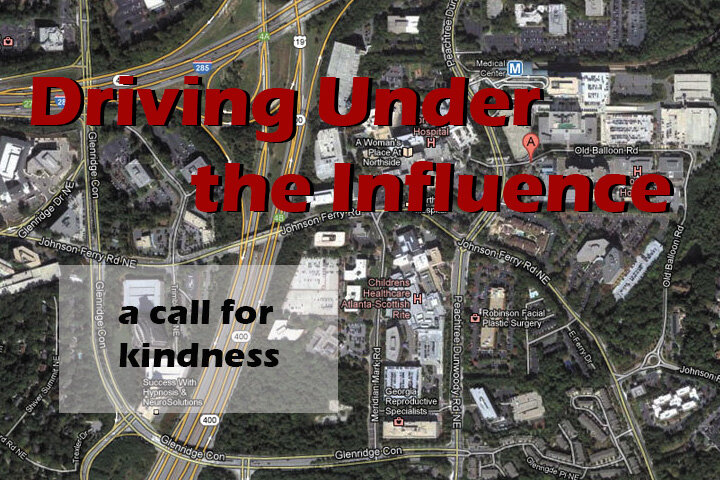“If you want to blame, you will find a fault. If you want to sing, you will find a song.” – Unknown
Viewing entries in
#wayfinding
“Time is the inexplicable raw material of everything.” - Arnold Bennett
“Everything that is done in the world is done by hope.” – Martin Luther
“In the last resort nothing is ridiculous except the fear of being so.” – Henri Fauconnier
“Courage comes by being brave; fear comes by holding back.” – Publilius Syrus
“Happiness isn’t something you experience; it’s something you remember.” – Oscar Levant
“Cowards never start. The weak never finish. Winners never quit.” – Unknown
I do a lot of interviewing. Not only have I been building out a team of my own, but I am also a “bar raiser” at Amazon which means that I participate in many interviews in an effort to maintain a high hiring bar for roles all over the company. I have interviewed candidates senior and junior roles ranging from software developers to economists from marketers to security guards. I get to ask candidates about the decisions that they have made and the outcomes of those decisions. This has sharpened my focus on decision making as a leadership skill.
Early in your career, when you are new to a role, or in some process-oriented positions, your job is to execute on decisions made by others. You run the plays, follow instructions, and earn the trust of the organization, your colleagues, and your manager.
As you develop your scope and influence, you are called to make decisions. Others seek you out for answers and advice. You look at the data and determine the ruling. You umpire. You judge. Your opinion becomes the recommendation. If you make good decisions, you get to make more decisions, faster and with greater complexity and risk. More people are impacted. More dollars are at stake. More is riding on you getting it right.
That broadening scope of decision impact is fairly well understood. When interviewing, I try to assess the kind of autonomy and responsibility a person had in their previous roles by learning about the decisions that they made (or didn’t). Decision making authority can be codified in things like spending authority. At leading companies, cultural fit is determined by how the candidate made decisions, who they involved (or not), and how they learned from mistakes (or didn’t). Making decisions is a litmus test of organizational seniority.
However, scope and impact of decisions aren’t the only measures of leadership. The most impactful leaders don’t just make decisions, they create the moment of decision. They don’t just answer questions brought to them, they ask new questions. If you consider the business leaders who have lasting impact outside of their individual teams, business, or industry they have in common that they created disruption. That disruption is caused not by answering the questions in front of them, but by anticipating tomorrow’s questions or forcing the answers to questions that no one else is considering. If you wait until there is an obvious fork in the road, it may not matter which path you take. Truth is you are too late and you have lost the race. Why? Because someone else created the fork in the road. They were the first to divert from the path to create something new. Truth is, if you are at a fork where the options are clear, you are a follower.
Most forks in the road don’t start as high-stakes decisions, thankfully. When done best, they are small experiments, pilots, or proofs of concepts. Small ventures, building upon each other in layers of learning, until a road is paved. By the time others come to fork in the road, the stakes are higher. This is what defensible differentiation is all about. Making the fork in the road more costly for the next traveler. Followers are faced with high-stakes decisions. “Should we abandon their existing legacy business to pursue something that would maintain their competitiveness in the future because we can’t afford to do both?” they must ask. Often they are forced to partner with frenemies to lower the stakes, which can be a sound approach when it is clear that there is a front-runner and it isn’t you. But how much better would it be to have created the fork in the road? To disrupt yourself. The annuls of business history are littered with companies with dominant positions in their space, the bigger market share, the most loyal customers, and with the best minds in the business…who got left at a turn.
This is true of the movement of whole organizations and down at the team level as well. Managers make decisions within the boxes on the organization chart or within the confines of the business charter. Leaders work in the blanks between the boxes and can see possibilities. The leadership pioneer Peter Drucker once said that “the most serious mistakes are not being made as a result of wrong answers. The truly dangerous thing is asking the wrong question.” Or perhaps not asking questions at all or after the answer is obvious.
As you think about your work, your short-term goals, and long-term ambitions consider your decision. : the decisions you are asked to make and what decisions you can truly make proactively. May you have the boldness to make your own forks in the road.
I used to commute past a hospital. To call it a “commute” is to be generous as it was two right turns between my home and the public transit station where I parked. And to call it a “hospital” isn’t quite right, as it was a multi-block complex with multiple hospitals, including a children’s research facility, clinics, hotels, and at least two emergency rooms. There were a few lights to navigate on this short stretch and I would often find myself observing or being impeded by folks going the wrong way, blocking the box of the intersection, going too fast, going too slow, and otherwise driving recklessly. Since the road was so familiar to me, I would often forget my own context. In my narrow view, I could believe that I was surrounded by cars breaking laws and risking the safety and sanity of other drivers. I could get impatient or confused. I was under the influence of my own thoughts, judgements, prejudices, and impatience.
While tuning out the world, I would be extra diligent to avoid getting in an accident myself. Not like those other drivers or pedestrians who weren’t paying such close attention. On other days, however, I would ACTUALLY pay attention.
I’d notice that the car speeding and cutting me off was turning into the driveway for the emergency room.
The minivan with the missing taillight who nearly caused an accident had much bigger things to worry about as they peered in the rear-view mirror at their cancer-fighting child in the backseat.
The driver who was blocking the intersection looked nervously at the passenger seated beside them, hoping that the test results were not what they feared.
The car crawling down the road at a snail’s pace with a new baby car seat in the back was driven by a terrified mom and dad wondering why the hospital let them leave so unprepared to care for this child (as I must admit I felt myself as a new parent).
Perhaps a family was debating treatment options or in despair realizing the gap between what they wanted to do and what they can afford to do while they missed the stop sign.
Maybe the person pulling out of the employee parking garage just got off a 12 hour shift and was physically and emotionally exhausted, relying on what remained of their last coffee to have the strength to push the accelerator at all.
I’d look at the pedestrian stumbling or shuffling across the street, not at the cross walk or at the light, and surmise that the distractions on their mind were more urgent than mine.
I decided that I didn’t know their stories, but if I was going to guess, I started to choose my judgements more generously. If you zoomed out, this small part of the city, measured by only few street lights and intersections, held the weight of thousands of extreme emotions. This is where families welcomed babies and said good-bye to grandparents. This is where children triumphed over disease and where disease sometimes won. It is where battles were being fought, twenty-four hours a day and 7 days a week. So, the small skirmishes on the road were nothing. If anything, these were a call to empathy, grace, patience, solidarity, and advocacy. I’d rather be driving under the influence of those virtues than their baser alternatives.
And that mindset change, changed the way I drove. I drove a little slower. I let people in. I overlooked the small stuff. I wanted to know the real stories. And I left many acts of kindness undone as it took me too long to see. I am still learning to see and choose my influence wisely.
Perhaps you have heard the quote or its derivatives* “Be kind, for everyone you meet is fighting a hard battle you know nothing about.” This is definitely true in what Atlanta calls “pill hill,” but it is true on your street, your city, and your country, as well. It’s true in your business and among your colleagues and customers. Whether we are behind the wheel or not, we are all driving under the influence of something. Choose kindness.
*This idea has been attributed to Ian Mclaren, Wendy Mass, Brad Meltzer, Philo, Plato, or Socrates.
“Great minds have purposes, others have wishes.” – Washington Irving
“They that will not be counselled, cannot be helped. If you do not hear reason, she will rap you on the knuckles.” – Benjamin Franklin
“In questions of science, the authority of a thousand is not worth that humble reasoning of a single individual.” – Galileo Galilei
“Some will never learn anything because they understand everything too soon.” – Thomas Blount
“Read every day something no one else is reading. Think every day something no one else is thinking. It is bad for the mind to be always a part of a unanimity.” – Christopher Morley
“They know enough who know how to learn.” – Henry Adams
“To heal the breach between the rich and the poor, it is necessary to distinguish between justice and charity.” – Pope Pius X
“I never remember feeling tired by work, though idleness exhausts me completely.” – Sr Arthur Conan Doyle
“Picture yourself going through the whole process of your worst fears becoming a reality. Get all the way to the other side of it. What do you see there?” - Beth Moore
“We will not compare ourselves with each other, as if one of us were better and another worse. We have far more interesting things to do with our lives. Each of us is an original.” – The Message








































